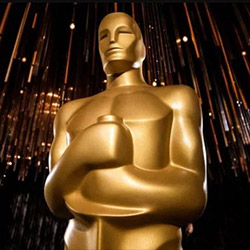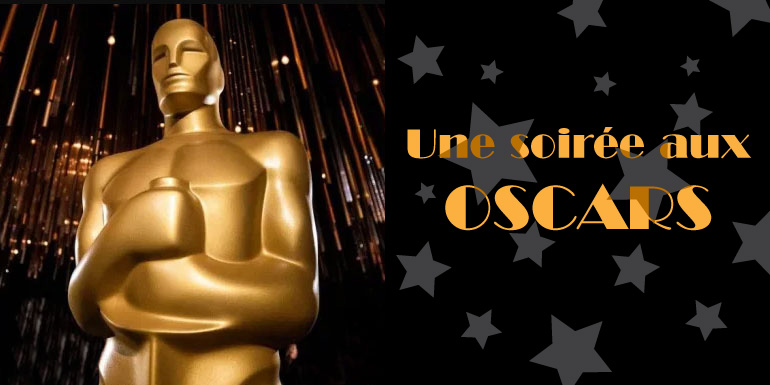A Night at the Oscars
Since their creation in 1928, the Oscars have celebrated countless milestones in the history of cinema. They are also a rich source of insight into the evolution of the film industry. Each ceremony is a reminder of the passion, talent and innovation that continue to make cinema a major art form. Today's short retrospective highlights the achievements, records and anecdotes that have shaped this prestigious ceremony.
Early Awards and Pioneers
Since its inception, the Oscars have spotlighted pioneering talent, marking the beginning of an era of recognition for achievement in film. The very first Oscar ceremony saw the film "Wings" win Best Picture, inaugurating the tradition of rewarding cinematic excellence. Iconic figures such as Emil Jannings and Janet Gaynor were the first to be honored in the Best Actor and Best Actress categories, respectively, laying the foundations for future winners. These early awards set standards of excellence and paved the way for future generations of artists.
Memorable Moments and Anecdotes
The Oscars have witnessed some unique and sometimes unexpected moments that have remained etched in the collective memory. From moving victory speeches, such as that of Halle Berry, the first black woman to win the Oscar for Best Actress, to bold fashion choices on the red carpet, every ceremony brings its share of surprises and memorable statements. What's more, films like Bong Joon-ho's "Parasite", the first non-English-language film to win the Best Picture Award, demonstrate the Academy's growing openness to cultural diversity.
Special Cases and Curiosities
Throughout its many editions, the Oscars have also revealed stories of determination and passion. The example of Leonardo DiCaprio, who, after several nominations, finally won the Oscar for Best Actor for "The Revenant", illustrates perseverance in the face of fierce competition. On the other hand, innovative films or films from less traditional Oscar genres, such as Jordan Peele's "Get Out", managed to break convention and win awards, showing the evolution of the Academy's tastes and criteria.
The history of the Oscars is also punctuated by special cases, such as that of Peter O'Toole, who, despite eight nominations, never won the golden statuette. These stories add a layer of complexity and humanity to the ceremony, reminding us that the art of cinema is often subjective and full of surprises.
Influence and Evolution
The evolution of the Oscars mirrors that of world cinema, recognizing a growing diversity of talents and genres. By rewarding films of all origins and honoring actors and directors from diverse backgrounds, the Oscars have played a crucial role in promoting cinematic excellence around the world.
The Oscars' ability to reflect and influence cinematic trends is indisputable. By rewarding works that tackle important social, political and cultural themes, the Oscars contribute to societal dialogue and encourage deeper reflection. The growing inclusion of international films and creators from diverse backgrounds demonstrates evolution towards a more inclusive and global film industry.
In short, the history of the Oscars is a fascinating showcase of cinematic excellence, highlighting extraordinary talent, groundbreaking works and moments that have touched the hearts of millions of viewers around the world. Each year, the ceremony continues to celebrate the best in cinema, while adapting and responding to changes in the industry and society.
Records and notable achievements
Actors
- Jack Nicholson: With three Oscars to his credit (two for Best Actor and one for Best Supporting Actor) and twelve nominations, Nicholson stands out as one of the Academy's most recognized actors.
- Daniel Day-Lewis: The only actor to have won three Best Actor Oscars, for his roles in "My Left Foot", "There Will Be Blood" and "Lincoln", testifying to his exceptional talent and ability to embody complex characters.
- Tom Hanks: With back-to-back Best Actor Oscars for "Philadelphia" and "Forrest Gump", Hanks made history with his iconic performances and on-screen charisma.
- Denzel Washington: A two-time winner (Best Supporting Actor for "Glory" and Best Actor for "Training Day"), Washington is renowned for the power and depth of his interpretations.
- Sean Penn: Winner of two Best Actor Oscars for "Mystic River" and "Milk", Penn is celebrated for his commitment to his roles and his ability to address important social issues through his performances.
Actresses
- Katharine Hepburn: With four Best Actress Oscars (a record in this category), Hepburn set a standard of excellence and longevity in the industry.
- Meryl Streep: Holding the record for most nominations (21 for an actress, including 17 for Best Actress and 4 for Best Supporting Actress) and having won three Oscars, Streep is synonymous with talent, versatility and consistency.
- Ingrid Bergman: Awarded three Oscars (two for Best Actress and one for Best Supporting Actress), Bergman remains a cinema icon for her timeless roles.
- Bette Davis: With two Best Actress Oscars and ten nominations, Davis is renowned for her powerful roles and unrivaled stage presence.
- Jodie Foster: Winner of two Best Actress Oscars for "The Accused" and "The Silence of the Lambs", Foster is admired for her ability to embody strong, complex characters.
Directors
- John Ford: With four Best Director Oscars, Ford holds the record in this category, celebrated for his contributions to the Western genre and for his impact on American cinema.
- Steven Spielberg: Winner of two Best Director Oscars (and several other nominations), Spielberg is one of the most influential and recognized directors, known for his imagination and ability to captivate audiences.
- Frank Capra: With three Oscars for Best Director, Capra is renowned for his inspiring films that capture the American spirit and universal values.
- William Wyler: Winner of three Best Director Oscars, Wyler is renowned for his technical mastery and ability to direct actors to memorable performances.
- Clint Eastwood: Winner of two Oscars for Best Director, Eastwood is hailed for his distinctive style and his contribution to both critical and popular films.
Films
- "Ben-Hur" (1959), "Titanic" (1997), and "The Lord of the Rings: The Return of the King" (2003): Each of these films holds a record 11 Oscars, representing triumphs in different genres and eras.
- "West Side Story" (1961): This musical film won 10 Oscars, standing out as one of the most awarded musical films in history.
- "La La Land" (2016): With six Oscars won out of fourteen nominations, this film holds the record for nominations equaled with "Titanic" and "All About Eve".
- "All About Eve" (1950): This classic film also received 14 Oscar nominations, a record for the era, and won six statuettes.
- "The Artist" (2011): As a black-and-white silent film, "The Artist" won five Oscars, including Best Picture, demonstrating the Academy's continued appreciation for classic and innovative cinema.
Quiz questions preview
-
Which woman has won the most trophies in the history of Academy Awards?
Edith Head | Katharine Hepburn | Thelma Schoonmaker | Meryl Streep -
Oscar for Best Picture in 1977.
Network | A Star Is Born | Rocky | Taxi Driver -
It was the first Best Picture winning color film in 1940.
The Wizard of Oz | The Jazz Singer | Gone with the Wind | Casablanca -
It was the film that won the most Oscars at the 91st Academy Awards in 2019.
Green Book | Black Panther | The Favourite | Bohemian Rhapsody -
She won the Academy Award for Best Actress for his role as Clarice Starling in "The Silence of the Lambs" in 1992.
Geena Davis | Michelle Pfeiffer | Laura Dern | Jodie Foster


